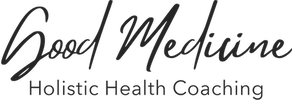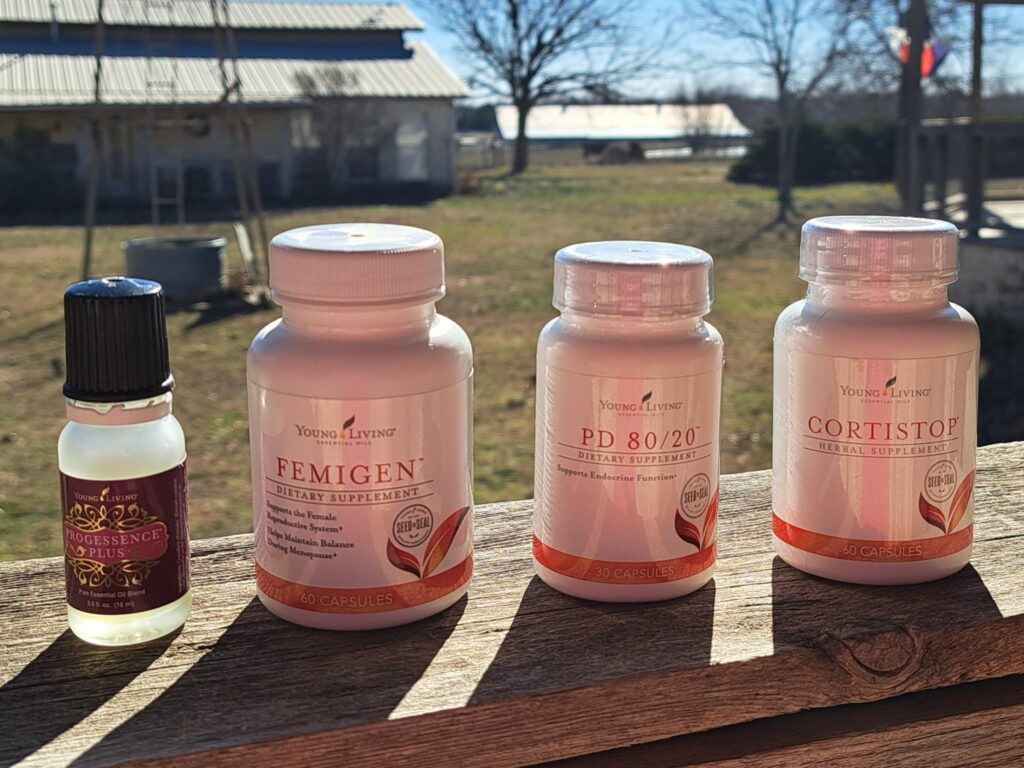
Does Everyone Need Hormone Support?

Liz James · ·

Liz James · ·
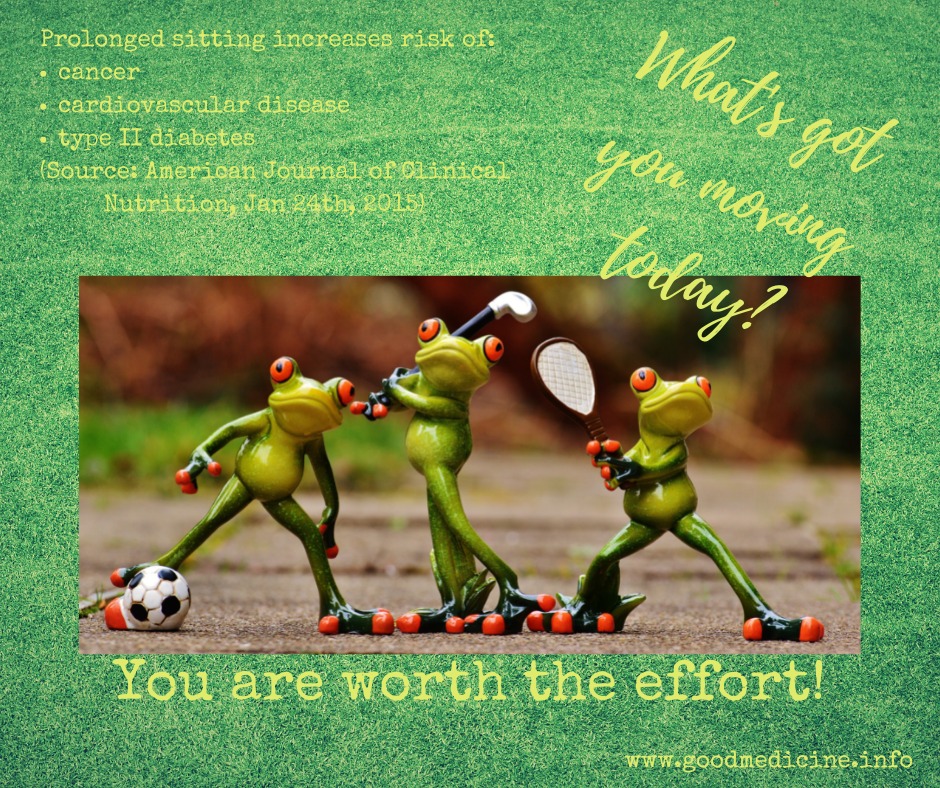
Liz James · ·
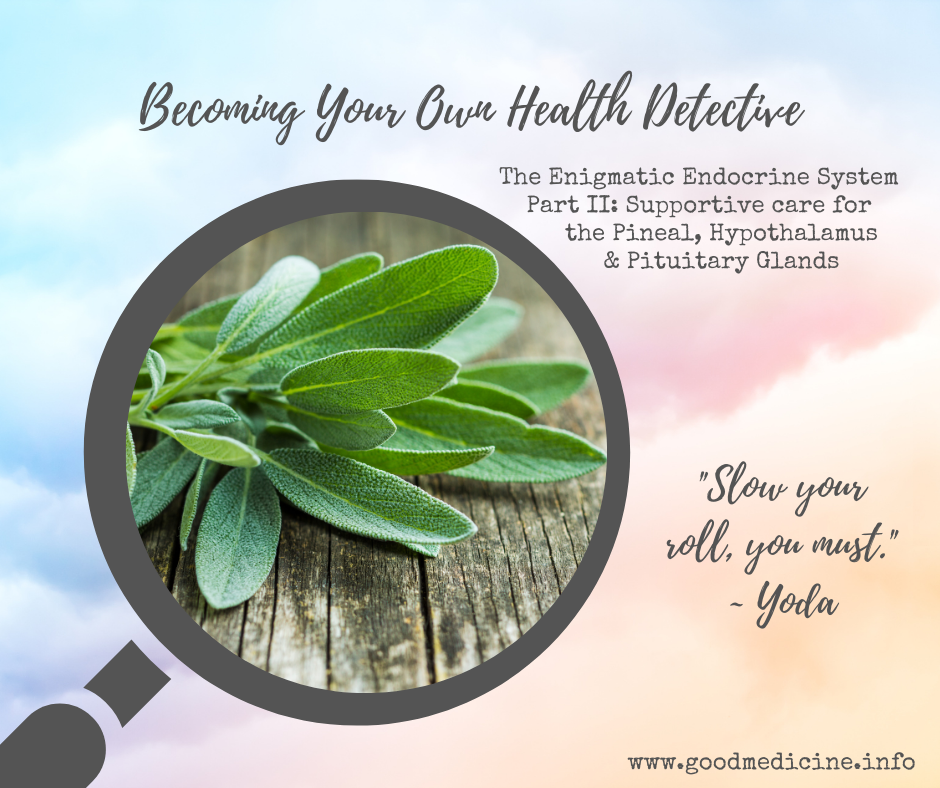
Liz James · ·

Liz James · ·
Dopamine Deficiency Part IV: More Solutions
Do you struggle with belief in any area of your life? Maybe it’s work…. Self confidence…. Big goals…. If so, know that improving your dopamine balance will only help you grow into living what you struggle to believe. Now would be a great time to grab that bottle of Believe essential oil and become a walking diffuser for yourself. Go grab it now… I’ll wait for you!
Gary Young knew which plant chemicals stimulate, protect, and support healthy dopamine levels. And of course, he knew that belief is fueled by dopamine. Essential oils Balsam, Coriander
, Bergamot
, Frankincense
, Idaho Blue Spruce
, Ylang ylang
, and Geranium
all fuel belief through their effect on dopamine within us. These are the oils within the blend Believe. Pretty cool right? Gary never made a product that wasn’t highly purposeful!
Other oils that have been found to contain constituents supportive of healthy dopamine levels in the body include rosemary, oregano
, thyme
, rose
, sandalwood
, neroli
, palmarosa
, and marjoram
. Did you notice that many of these oils are used in Raindrop massage? Just one more reason everyone should receive a Raindrop on the regular!
God has gifted us with so many natural ways to support dopamine levels. (Go back and review last week’s post so that you’ll have the full combined list!)
Mowing the yard! It may be hard work, but the aroma of fresh cut grass contains a chemical called hexanal (the “green” smell of grass) that stimulates dopamine release.
St. John’s Wort has been found to increase dopamine in the prefrontal cortex of the brain by 40%. Resveratrol has been found to perform similarly ( found in red wine, fresh grapes, dark chocolate, blueberries, peanut butter)
Organic coffee (No more than one cup a day or it may contribute to adrenal fatigue…. A dopamine high followed by a crash!) or a cuppa organic green tea (Have you tried the YL Vanilla Lemongrass Green Tea yet?) is a dopamine supportive treat.
Rhodiola is another herb known to stimulate dopamine receptors and inhibit enzymes that break down dopamine in the brain. Ashwagandha (You might recognize this as an ingredient in Powergize and Endogize) is also an effective adaptogen with supportive dopamine activity.
Pregnenolone is a natural hormone produced in the body that has a positive effect on dopamine levels in the brain. It is an ingredient in hormone supportive Cortistop capsules, PD 80/20 capsules, and Regenolone moisturizing cream. Do a little research on each of these to determine if they might fight your individual hormone balancing needs.
Acupuncture stimulates the vagus nerve, which in turn support healthy dopamine levels. (Go back and reread the section on low vagal tone!)
Creating and performing music boosts dopamine levels even more than listening to your favorite tunes, but all three are effective. Listening to music has even been shown to improve fine motor skills in Parkinson’s patients.
Chronic inflammation reduces dopamine synthesis and release in the brain. We’ve got tools on hand to support a healthy inflammatory response (as opposed to the runaway variety!). Sulfurzyme, BLM, Agilease, and OmegaGize3 are excellent supplements. Nobody can “out supplement” an unhealthy lifestyle…..examine your life and look for offending (and often hidden) toxin triggers in household chemicals, processed foods and drinks, body care products, and makeup.
Lack of sleep down regulates dopamine receptors and reduces dopamine receptor availability. You know what to do! Sleep is so very important in ALL aspects of health. Review your sleep hygiene practices and look for “holes in the armor” that may result in interrupted sleep. I LOVE and incorporate Rutavala on the base of my big toe and Immupro (chewable) in my bedtime rituals.
Iron plays a role in dopaminergic neurotransmission. Iron and ferritin levels are important lab values to watch (both for being too low and too high). Natural sources of iron include spirulina ( an ingredient in Multigreens), dark chocolate, spinach, shellfish, organ meats (I highly suggest Sally Fallon’s cookbook Nourishing Traditions), beans, lentils, chickpeas, red meat, pumpkin seeds, quinoa, turkey, broccoli, and fish.
Vitamin C assists with the formation and conversion of dopamine in the brain. Deficient levels of vitamin C may show up as a low mood. Super C Chewables are a tasty way to supplement daily.
Vitamins B6 and B9 are critical for dopamine synthesis. Low folate levels contribute massively to low dopamine levels which may ultimately lead to depression. Super B is another fantastic supplement to help the body in at least a thousand little and big ways.
Alternate between standing and sitting. “Chronic sitting” lowers dopamine levels. Our body was designed to move!
Finish a project. Who knew? This in itself causes the brain to flood with dopamine.
Huge (and easy) list, right? And yet, sometimes it may seem hard to get motivated to make the changes. Circle back around….. Grab your bottle of Believe, and start somewhere small. I promise you won’t regret finding your dopamine happy place!
xoxo~liz
#caringissharing#knowbetterdobetter#dopamineisdope#balanceddopamineisgoodmedicine#goodmedicine#BecomingYourOwnHealthDetective
#ThanksYL
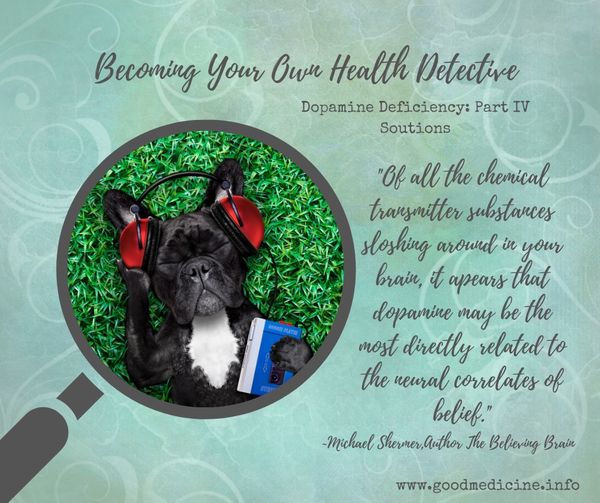
Book Your Health Coaching CallBook Now
